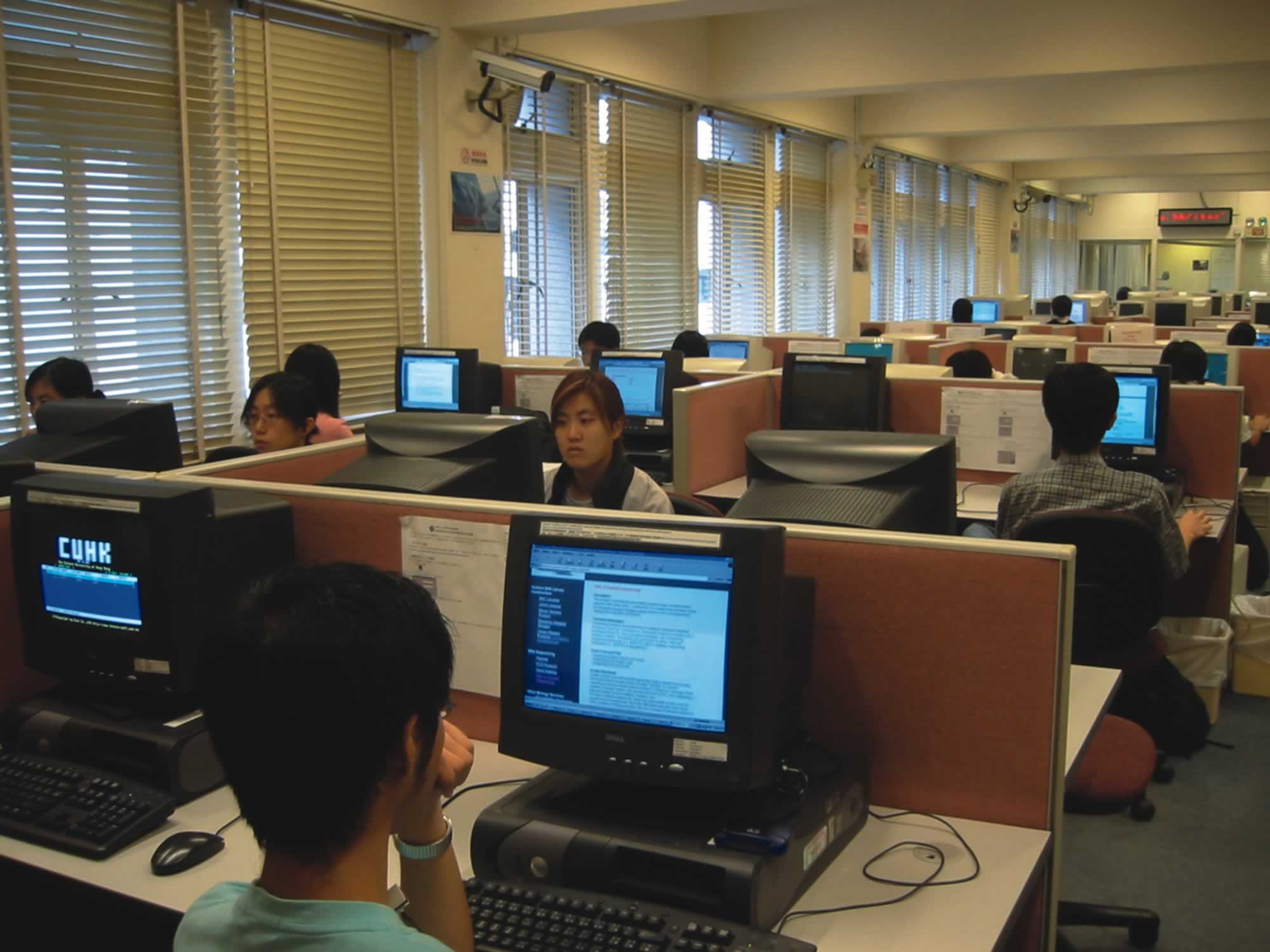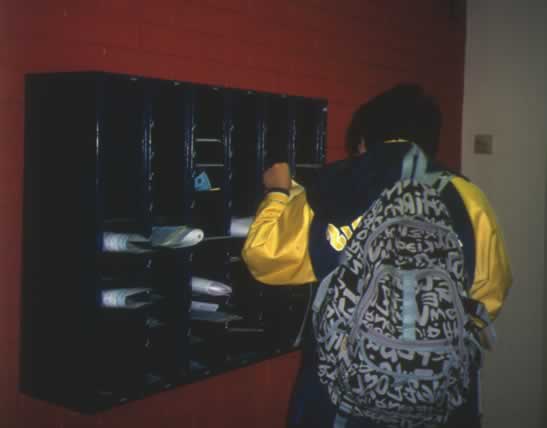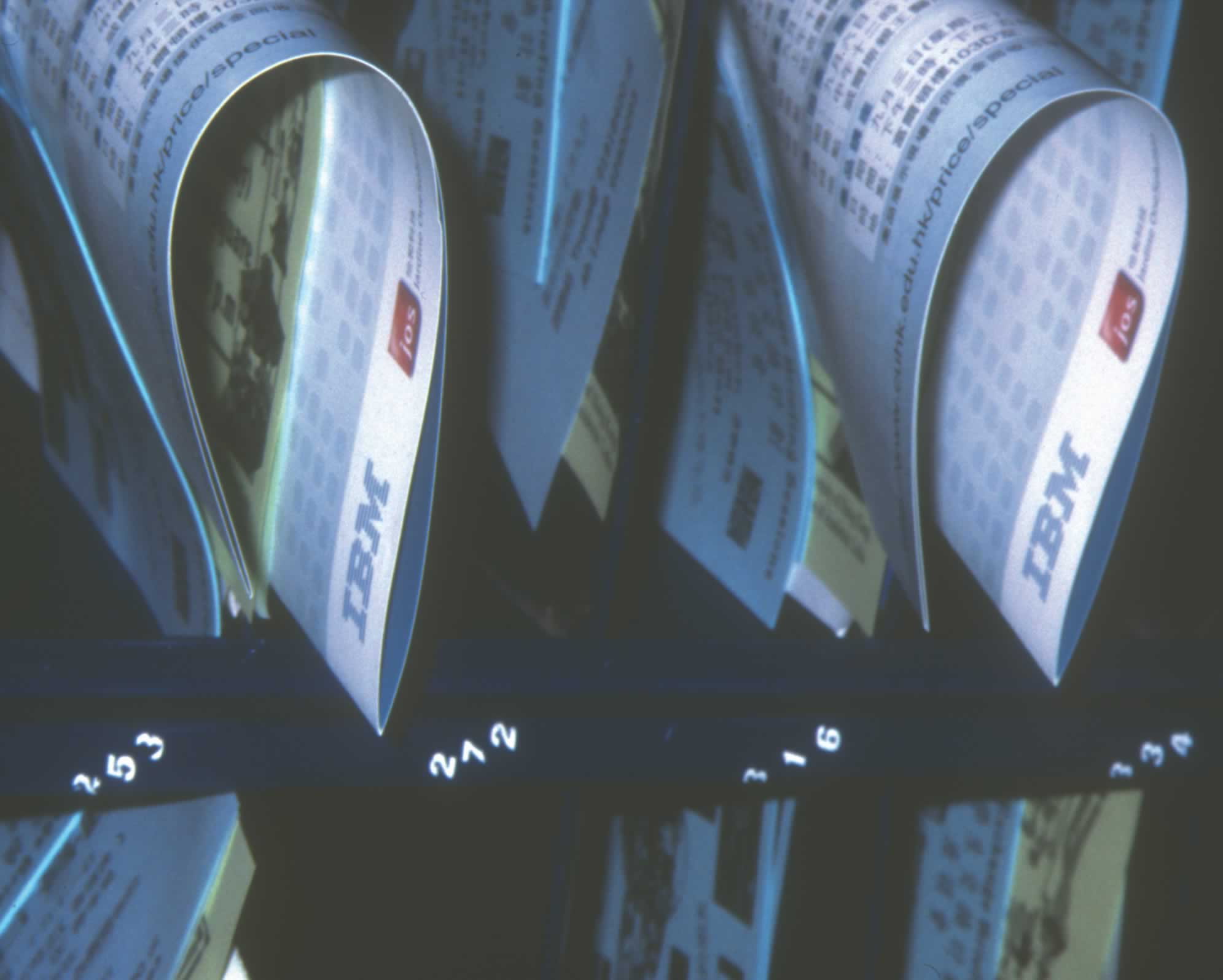Commercial ads delivered
.jpg)
Commercial ads delivered
Fining abusers of email services in universities
By Ma Ka Wa
Univeristy students receive junk mail through the internal mail systems.
University staff and students receive commercial advertise ments through their internal mail systems.
According to the Privacy Ordinance, mail abusers without a reasonable excuse are liable to a fine of $10,000.
According to Tsui Yiu Ming, head of the User Services Section of the Information Technology Services Center at The Chinese University of Hong Kong, the center delivers at least 100,000 electronic mails every day, of which 10 percent are unsolicited emails.“We receive 30 to 40 complaints from users every year,” said Mr. Tsui.
However, he believes thousands of university mail service users don’t
complain.
The Information Technology Services Center delivers email from senders to
recipients.
The mass mailing system provided by the center facilitates university internal
communications.To ensure proper use of the mail services in universities, six pages of guidelines and policies are provided to mail services users.
According to Mr. Tsui, the services are provided for university staff and students, and no individual is permitted to send mass mail to the users.
He added, “Unsolicited email for commercial purposes is definitely not allowed.”
To combat junk mail, the Information Technology Services Center sends warnings to abusers.
If the abusers pay no attention, the Center will lodge complaints to the Internet services providers.
“Usually, the Internet services provider follows up our complaints.
“In extreme cases, the Internet services provider removes the account of the mail abusers,” explained Mr. Tsui.
To counteract commercial junk mail, two measures, labelling and optioning, are practiced.
The former means abusers are blacklisted. Junk mail from them can be identified automatically and then removed.
Optioning allows users to use a junk filter and claim themselves as spam haters. Then no commercial mail can reach their internal accounts.
Nevertheless, the center can do nothing about professional spammers who send many copies of the same message through the Internet.
They do not deliver commercial advertising through Internet services providers, and they always change their accounts.
The Users Service Manager of the Information Technology Services Center at Lingnan University said, “In the mailbox, our staff and students even discover pornographic materials.
“We cannot help this because the system cannot filter such materials.
“Each year, the center receives not more than five complaints from our staff, but we do know there are dozens of informal complaints about the junk mail.”
Trying to improve the situation, the center ensures that its email distribution list is not disclosed to the public.
At Hong Kong Baptist University, 4,000 students and 1,000 staff use email services.
Tong Siu Hung, assistant director of the Information Technology Services Center at Baptist University, said, “Our system can scan for viruses, but not commercial advertisements.
“If we scan the content of email, we will infringe the privacy of users,” explained Mr. Tong.
“It is actually controversial.
“We conducted a survey. About 70 percent of users hate commercial email.
“However, we cannot ignore the other 30 percent by blocking all outside communications.”
The nature of junk mail is the same as brochures in mailboxes, as long as commercial companies aim at making profit.
Yet, through electronic mail, companies can promote products without paying postal costs.
Warning students be cautious, Mr. Tong said, “There are illegal companies selling electronic mail addresses. Your email address can easily be attained once you use an email account.
“Law in Hong Kong does not pinpoint the issue, and it is difficult to do so,” said Mr. Tong.
W. Y. Wong, a solicitor of Siao, Wen and Leung Solicitors & Notaries, commented, “It is inappropriate to say making use of university internal mail services for commercial purpose is illegal.
“Our major concern is how your email data are disclosed.
“For instance, if you put your email address on a membership application form of a restaurant and the restaurant sends dozens of advertisements to you, it is not illegal for the restaurant to do so.”
According to the Privacy Ordinance, advertisers should give recipients a choice.
The sentence “If you don’t want our mail anymore, please send this mail back” should be stated in commercial email.
“You should reflect your discontentment by notifying the senders. Otherwise, the senders do not have any responsibility,” said Miss Wong.
It is considered criminal only when the senders ignore the wishes of recipients or fail to give recipients a way to refuse their email.
Once abusers are convicted of disseminating junk mail, they can be fined $10,000.
“It is rare, though,” said Miss Wong.
Fining is not only rare, but also unheard of by students.
Lam Ho Keung, a student of material science at The Chinese University of Hong Kong, said, “I didn’t know sending mass commercial advertisements can result in fines.”
Furthermore, advertisements from firms outside Hong Kong are not covered by local laws.
Brochures in student mailboxes.

Getting used to junk
By Ma Ka Wa
Tsui Yiu Ming is head of the User Services Section of the Information Technology Services Center at The Chinese University of Hong Kong.
He said, “Some people dislike receiving mass mail from the Information Technology Services Center although they are entitled to email services.
“You’re supposed to check coursework materials after you log in your account.
“However, if hundreds of junk mails are sent to you, it is really frustrating.
“The ratio of information to junk is increasing.”
Students spend time deleting junk mail rather than checking useful information, said Mr. Tsui.
However, students might not be frustrated by junk mail.
Ho Chiu Yin, a Year 3 student of information engineering at the Chinese University, said, “I seldom receive commercial mail through my internal account.”
Lam Ho Keung, a Year 2 student of material science engineering at the Chinese University, said, “When I receive junk mail, I simply delete it.”
Ma Pak Wah, a student of social policy and administration at The Hong Kong Polytechnic University, said, “I have received advertisement about a slimming-up package. Frankly, I have gotten used to receiving this junk.”



